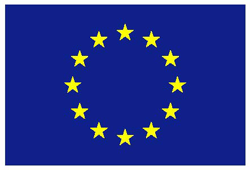EU research: ?We Need to Know What People on the Ground Have to Say?
24 Apr, 2007 01:16 pm
The European Commission has recently published a green report on the future of the European Research Area (ERA), an entity created to improve the interaction between scientists in the different member states. Antonia Mochan, the Spokesperson for Science and Research at EU Commission, answers Scitizen?s questions.
 The green paper states that “there is still much further to go to build ERA, particularly to overcome the fragmentation of research activities, programmes and policies across Europe.” How would you characterize this “fragmentation”?
The green paper states that “there is still much further to go to build ERA, particularly to overcome the fragmentation of research activities, programmes and policies across Europe.” How would you characterize this “fragmentation”? We know that the EU has been about free movement of goods, free movement of people, capital goods and services, and what we’re trying to do with this is really set the European fifth freedom: the free movement of knowledge. So what we need for Europe’s future is knowledge to be able to circulate freely within the EU. And this is not just about people, but this is about being able to accompany, being able to access knowledge we need wherever it is, universities being able to build relationships with other universities wherever they are in Europe.
What we find too much at the moment is that research is about national priorities and it’s quite difficult for people to find partners, to share a team outside, in a very constructive long-term way. It’s quite difficult to build a real partnership. That is what we were talking about when we talked about fragmentation. Much of what is done in research is done on a national basis, and it’s not easy to move out of that national into a European context. Now, things have very much improved since the European Research Area was launched in 2000, but what we’re saying is, at the moment, there’s still much to be done.
 The Lisbon strategy (in 2000) assigned the objective of 3 % of GDP for research and development in Europe. However, the global expense for R&D in Europe was limited to 1,8% of GDP in 2005. Would you say that the objectives were too ambitious?
The Lisbon strategy (in 2000) assigned the objective of 3 % of GDP for research and development in Europe. However, the global expense for R&D in Europe was limited to 1,8% of GDP in 2005. Would you say that the objectives were too ambitious?I mean, firstly, just to be exact, the objective of 3% was adopted in 2002. I want to be exact, talking to scientists.
It’s true that if we look now at what the situation in the last couple of years, and we have figures for 2005, it’s not very encouraging. Although that’s half-way the purpose, we do still have five years, and we also need to remember that we haven’t had figures for years. The member states really improved the governance when they came up with targets committed to a national level that they didn’t have before. So, if the member states stick to the commitment that they made in the national reform programme, we will be looking at a level of 2,6% in 2010 which is less than 3% but which is more than 1,8. It’s definitively better.
We know that we need to invest more, but it’s also a question of how to invest: we need to invest well. Investing more is not a guarantee of success, not investing is a guarantee of failure. The Green paper is also looking at how we use that money.
The green paper lists a few measures that should be taken to improve the
ERA. What are the major measures and how do you expect to implement them?
The Green paper is a consultative document. We’re kind of putting forward what we see as the issues, and really sounding out with the scientific community and with the decision makers on whatever interests the groups. We want people to take position; we want to hear what the community has to say. We want them to identify the main problems.
Number one is sharing resources. The ability of people to move from one member state to another. If a professor is offered a really interesting position somewhere else, he should be able to take it. If somebody has a chance to work in the industry for a couple of years, we don’t want his career to be penalized when he goes back to his institution. This is the kind of issues the survey is looking at.
Better use of knowledge, knowledge transfer, knowledge sharing is particularly an issue. No one said Europeans are not good at research, but what they have been not good at in recent years is moving out knowledge into products and processes.
If we’re looking at the global context, Europe as a partner as well as a destination for research, we need to make it a more attractive destination for research. Research infrastructures are a very important part of it. At the moment there are one or two good examples of how we work together at the European level. ITER is probably going to be another example.
These are the sorts of issues we’re looking out.
The paper states that “while the average quality of European public research
is good, in many institutions it is not up to leading world standards”. How
did you come to that conclusion?
If we’re looking at that situation, not everyone is good at everything, and not everyone can be good at everything. So what we’re saying is: “shouldn’t people concentrate on the things they’re good at and let other people that are good at something else do that?”
Would you say that a common research policy is needed following the example
of the EU common agriculture policy?
No. And that is not what we’re saying and that’s not the way to approach that.
The Commissioner Potocnik said, when he announced the paper, that it was not about creating a single European research policy. It’s about working together better. Member states have different issues, they have different populations, structures, they have different industrial structures. It’s not going to work the same all over the place. But there is value working together, we should make sure that it’s possible to do so and there aren’t barriers.
The green paper will be open to discussion as of May 1st, on the commission
website. What do you expect from that consultation?
I mean there’s going to be a questionnaire on line from May 1st to August 31th.
That we’ll be a public consultation. What we want is to hear about as much from community researchers as possible, so that we know if we’re working on the correct assumptions. We need to know what people on the ground have to say. This is a real opportunity for researchers in the labs to tell us what they think, to share their experiences with us and then of course if we have a better understanding of what’s happening across Europe, we’ll be able to better design our conception of the situation
Interview by Gilles Prigent and Clementine Fullias
Antonia Mochan is the Spokesperson for Science and Research at EU Commission
-
31/03/09
The Wrong Enemy
-
07/11/08
Social Media for Scientists
-
03/11/08
Obama's Top Priority: Spark a New Energy Economy
-
20/10/08
The Ph.D. dance
-
25/07/08
Electrify America: The Founders Were Right, Let's Look to France!






